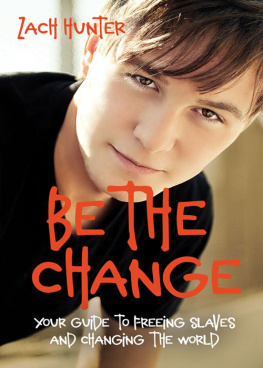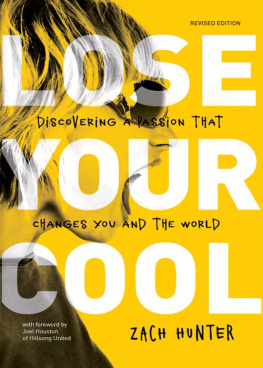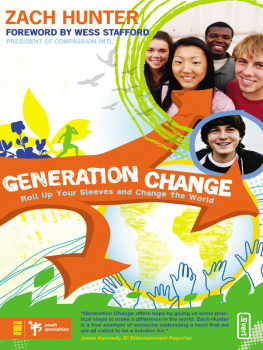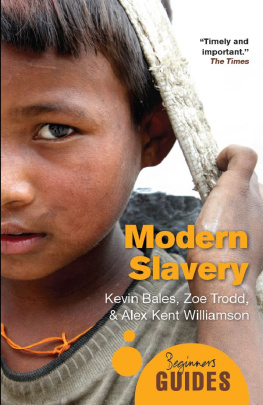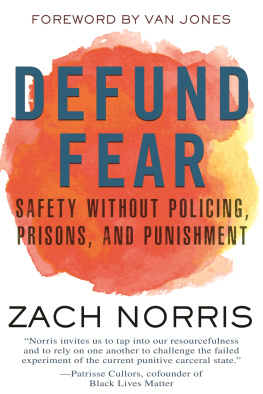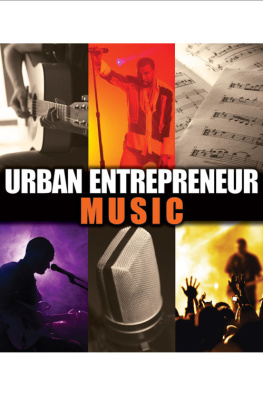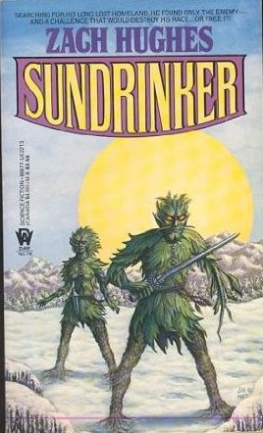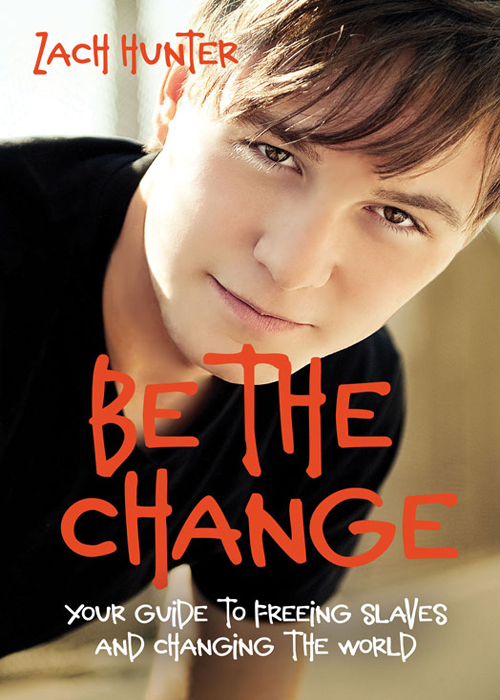When I first started writing Be the Change I was fourteen years old. Since the book released, its been a huge encouragement to hear from readers who are finding their own way to make a change in their communities and in the world. Im now nineteen years old still a teenager but Ive had the privilege of witnessing amazing things going on in my generation. In fact, as a result of everything that has happened in the past few years in the fight against slavery, I was asked to provide a few updates to this book so readers have the most-recent information and can continue to create change in the world around them.
Inside this new version of Be the Change you wont find heavily rewritten content we decided to leave my fourteen-year-old voice and writing intact. But what you will find is some new content, updates on the fight against slavery, and some new information on a few of the personal stories in the book.
During the past five years Ive traveled around much of the U.S. and other parts of the world learning more about the struggles many of our neighbors are facing and hearing how our generation is bringing relief. Its been an amazing, crazy adventure and Im so happy to be able to continue to share it with you. The fight for freedom is still on. And, while many people have responded to the call of being a voice for the voiceless, there is still much to be done, and much to be learned from the stories of the people that I wrote about in this book. Reading back through Be The Change, Im struck by the lessons that I still have to learn from these stories that I thought I knew so well.
Progress
Since the release of Be the Change awareness has been heightened to the plight of those whove been exploited or enslaved. When I was twelve, not many people knew about the issue of modern-day slavery. To try to convince people, especially adults, that slavery existed (even on U.S. soil) was quite a feat. But even before it became a hot-button cultural issue, a fashionable phenomenon, there were young people getting involved simply because its the right thing to do. In the past five years there have been several award-winning films, documentaries, books, and conferences about the issue of modern-day slavery. I still run into people occasionally who are completely unaware of the slave trade, but its much less common to talk to someone who has no idea people are being bought and sold.
Its been said that the first step in ending an atrocity is having people aware of the fact that its occurring. On that front, were making some progress. But with millions of people still enslaved, and corruption and exploitation thriving in many corners of the world, we still have much to do.
What I think is really cool is that students have been using what they have at their disposal, the skills or assets that theyve been given, to fight against slavery. I just want to cover three areas of society where a lot has happened in the area of social justice and the abolitionist movement in the past few years.
The Church
I love seeing followers of Jesus living out their faith and looking for ways to demonstrate to a suffering world that God is good. Youd be hard-pressed to find a church that hasnt incorporated some form of social justice (though they may not call it that) into their mission and outreach. There are entire churches that have become abolitionist churches, and, more specifically, more youth groups across the world have started Loose Change to Loosen Chains programs. Many youth groups are taking a serious look at what it means to love God by loving their neighbor.
Churches are treating those who are being exploited and those in extreme poverty as if those individuals were Jesus. We are realizing that people of faith are required to help those in need. It is an integral part of our lives something not to be left just for clergy or career missionaries. This is really encouraging to me, but I also have a caution. Im concerned that this not become a fad or a trend in church growth strategies. Instead, Im hoping we see this become a part of our DNA as global Christians something thats ingrained into us and is an outworking of our faith. I also hope we can see the necessary balance of studying and knowing the Bible so we will know how to live in a suffering world while reaching out and offering the hope Jesus has given us. No pendulum swings and extremes, but a faith accompanied by works and a compassionate life of grace. Our freedom was bought at a high price and we need to use our freedom to help free others.
Governments
Several years ago, the U.S. government started the Trafficking in Persons (TIP) office to monitor and snuff out human trafficking. Governments laced with corruption and who look the other way when people are being sold are being exposed. For the first time the TIP office is now ranking the United States in these areas exposing where trafficking is occurring and whats being done to fight it.
In the U.S., local law enforcement said that it was difficult to find and address situations of trafficking and girls who were forced to be prostitutes were treated as criminals because law enforcement didnt know what to do with them. In the past five years weve seen community groups, churches, and nonprofits come together and work with police to identify cases of trafficking, arrest the perpetrators, and help restore the dignity of the victims. Churches are becoming resources for local government officials and helping treat victims as victims by providing safe aftercare and a place to rebuild their lives.
There are more cases being tried and more perpetrators being held accountable around the world. People are getting educated about how to spot a victim of trafficking and how to report an abuse. These are all good signs.
Corporations
A lot of you may have heard of or purchased Fair Trade goods. More and more products are readily available that we can be sure are slave-free: chocolate, coffee, textiles, furniture, rugs. Now there are also a lot of better than fair trade products where corporations are investing back into the community, supporting local farmers and workers, and helping rescue people from poverty.
Reforms are being made even in industries that have historically been terrible in the area of human rights. For instance, in the chocolate industry even the big corporations are coming to the table to discuss how to clean up their practices. Were not there yet, but I hope to see a day when all of the big chocolate companies are slave-free. But for now, its really easy to walk into a Whole Foods or Costco and buy chocolate that is slave-free.

